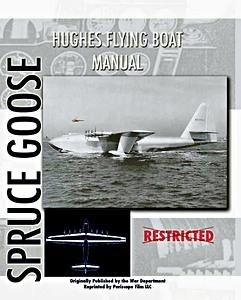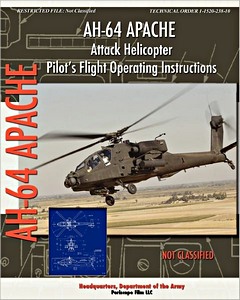Howard's Whirlybirds : Howard Hughes' Amazing Pioneering Helicopter Exploits
Howard Hughes, the movie mogul, aviation pioneer and political hound dog, has always fascinated the public with his mixture of secrecy, dashing lifestyle and reclusiveness. Companies responsible for major technological leaps often become household names.
An exception is Howard Hughes's pioneering helicopter company, Hughes Helicopters, a name that has fallen into oblivion. Yet most schoolboys in the world have heard of the company's prize-winning product: the Apache helicopter.
Hughes popularised the light helicopter trainer, mass-produced the first turbinepowered light observation helicopter, led the way in hot cycle rotorcraft propulsion research and, finally, developed the world's most advanced attack helicopter that was purchased and saw service with the UK.
Here's how some of the world's most innovative helicopters were developed. Covering the period from the Second World War until the mid- 1980s, you will learn why Hughes military aircraft contracts came under close scrutiny by the US government.
The story is rich with tales of technological breakthrough and test-flying bravado made possible by a small crew of engineers and daring pilots.
Written by a technical expert and insider to the industry, "Howard's Whirlybirds: Howard Hughes' Amazing Pioneering Helicopter Exploits" is a fascinating and alternative view on the phenomenal pioneer with unpublished photographs and material that will fascinate the aviation and military historian as well as the casual reader and cinema buff.
Donald J. Porter is an established aviation writer previously writing for Tab Books and McGraw Hill. He was previously a technical manager at Hughes Helicopters on the OH-6A and Apache programs during the firm's heyday.
Caractéristiques
| Auteur : | Donald J. Porter |
|---|---|
| Présentation : | 240 pages, 23.5 x 15.5 cm, relié |
| Illustration : | 30 photos en N&B |
| Langue : | anglais |
| Editeur : | Fonthill Media (GB, 2013) |
| ISBN : | 9781781550892 |

Howard's Whirlybirds : Howard Hughes' Amazing Pioneering Helicopter Exploits
Langue : anglais
Voir prix, disponibilité et avis sur Amazon
Acheter sur Amazon FRVoir sur Amazon BE
Acheter sur Amazon CA




